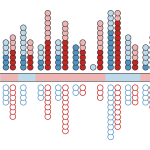Stay informed with free updates
Simply sign up to the Technology sector myFT Digest — delivered directly to your inbox.
If any one person embodies both the miracles and maladies of our digital age, it is probably Pavel Durov, the Russia-born founder of the Telegram messaging app who was detained in Paris on Saturday. To his supporters, Durov is a hero for creating a safe space for free speech. To his detractors, he is a villain for abetting criminal activity. In truth, he may be both.
Before rushing to judgment, it is worth considering Durov’s personal history. When I interviewed him in 2015, two years after Telegram’s launch, Durov told me about his family’s tragic past. Under Stalin, several members of his family, from Kyiv and Saint Petersburg, had been persecuted, deported to Siberia or shot. Durov drew no distinction between Hitler, who repressed ethnic minorities, and Stalin, who repressed social classes. He said he hated both equally, putting him at odds with the increasingly nationalistic regime of President Vladimir Putin.
VKontakte, the wildly popular Facebook-like social networking service Durov created with his brother, hosted opposition groups to the Kremlin. But in 2014 he was forced to sell his company to Kremlin-linked investors and quit the country. He counted himself lucky to escape the fate of his predecessors and emerge with $300mn. With those proceeds, he developed Telegram with the explicit goal of evading the intrusions of big government and providing “a social good”.
To that end, Telegram was originally designed as a decentralised network of data servers and as a nomadic corporation, although it is now based in Dubai. Durov promised to secure all private communications and boasted that he would never hand over any user data to any government. “I regard myself as a tech entrepreneur; not as a politician or philosopher. I’d be happy to see libertarian values spread, but it’s not something that I see as my mission,” he told me back then.
Nine years later, Telegram has become a remarkable success story, used by more than 900mn people who appreciate its simple, frictionless and seemingly secure services. There has even been talk of taking the company public in a blockbuster listing. Telegram combines a messaging service with a social network that allows users to communicate with up to 200,000 people at a time. It has been the service of choice for protest movements in Russia, Belarus, Iran, Myanmar and Hong Kong. It has provided welcome political oxygen for asphyxiating activists.
Remarkably, Telegram is the preferred platform for both Ukrainian and Russian nationalists to wage their propaganda wars, hosting graphic images of the conflict. Ironically, it has also been embraced by French politicians, including President Emmanuel Macron, who viewed its services as a welcome alternative to the dominant Silicon Valley giants. Durov has even been granted French citizenship.
However, civil society organisations and law enforcement agencies have grown increasingly concerned about the nefarious uses of Telegram, which they argue has become the new “dark web.” In particular, the French judicial authorities are investigating the platform for diffusing material about child sexual abuse and enabling criminal networks. Telegram has flatly rejected the charges. “It is absurd to claim that a platform or its owner are responsible for abuse of that platform,” the company said.
In so doing, Telegram does not appear to distinguish between the threatening demands of autocratic regimes and legitimate requests of law-enforcement authorities in democratic countries. Nor has it fully explained its mysterious banning and unbanning by the Russian authorities and its subsequent popularity among Kremlin officials. The service is also less secure than it seems: Telegram does not offer users end-to-end encryption on all their messages by default, as WhatsApp and Signal do. It would be in the interests of both the company, and its users, to clean up its act.
The somewhat infantile stance of libertarian absolutists is that there should be no limits on free speech. But a free society is not just about freedom of expression. It also revolves around the observance of laws and the protection of other precious human rights. Democracies may be messy but they are the best mechanisms we know for adjudicating between these freedoms and rights.
Paris prosecutors have now placed Durov under formal investigation. France has laws criminalising the diffusion of child sexual abuse material and the promotion of criminal activity. It is up to the French judicial system to determine whether Telegram has broken any of them.
Read the full article here



